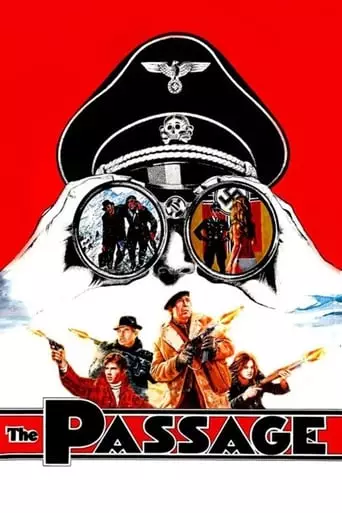During WW 2, a Basque shepherd is approached by the underground, who wants him to lead a scientist and his family across the Pyrenees. While being pursued by a sadistic German.
The Passage is a 1979 British action-war film directed by J. Lee Thompson, featuring Anthony Quinn, James Mason, and Malcolm McDowell. Set during World War II, the narrative follows Professor John Bergson (James Mason), a scientist targeted by the Nazis for his research. To escape the imminent threat, Bergson and his family seek refuge in neutral Spain. They enlist the help of a Basque shepherd, known only as The Basque (Anthony Quinn), to guide them across the treacherous Pyrenees Mountains. Their perilous journey is further complicated by the pursuit of a sadistic SS officer, Captain Von Berkow (Malcolm McDowell), who is determined to capture them. The film delves into themes of survival, human resilience, and the moral complexities faced during wartime.
Main Themes in The Passage
- Survival and Resilience: The film portrays the Bergson family’s struggle to survive amidst the dangers of war. Their journey through the Pyrenees symbolizes the human spirit’s resilience in the face of adversity. The characters’ determination to overcome obstacles highlights the universal will to survive.
- Moral Ambiguity: The narrative explores the moral complexities of wartime decisions. The characters are often faced with choices that challenge their ethical beliefs, reflecting the blurred lines between right and wrong in extreme circumstances.
- Human Connection and Sacrifice: The relationships between the characters, particularly between The Basque and the Bergson family, underscore themes of trust, sacrifice, and the bonds formed under duress. These connections are pivotal in navigating the challenges they face.
- The Brutality of War: Through the relentless pursuit by Captain Von Berkow and the harsh conditions of the Pyrenees, the film depicts the brutal realities of war. It highlights the inhumanity and the lengths to which individuals will go during times of conflict.
Impact of The Passage
Upon its release, The Passage received mixed reviews. Critics acknowledged the film’s ambitious attempt to blend action and drama within a wartime setting but noted its formulaic plot and lack of character depth. The performances, particularly by Anthony Quinn and Malcolm McDowell, were praised for adding gravitas to the narrative. Over time, the film has garnered a niche audience, appreciated for its portrayal of human endurance and the moral dilemmas faced during war. However, it remains relatively obscure in the broader context of war cinema.
7 Reasons to Watch The Passage
- Compelling Performances: Anthony Quinn delivers a powerful portrayal of The Basque, bringing depth and authenticity to his character. Malcolm McDowell’s depiction of the sadistic SS officer adds a chilling presence to the film. Their performances are central to the film’s emotional impact.
- Authentic Depiction of Wartime Struggles: The film offers a realistic portrayal of the hardships faced by individuals during World War II. The journey through the Pyrenees is depicted with raw intensity, highlighting the physical and emotional toll of war.
- Exploration of Moral Dilemmas: The Passage delves into the ethical challenges encountered during wartime, prompting viewers to reflect on the complexities of human behavior under extreme conditions. The characters’ decisions are both thought-provoking and poignant.
- Stunning Cinematography: The film showcases breathtaking landscapes of the Pyrenees, captured through impressive cinematography. The natural beauty contrasts sharply with the perilous journey, enhancing the visual appeal of the film.
- Intense Action Sequences: The film features well-choreographed action scenes that maintain suspense and keep viewers engaged. The pursuit by the SS officer and the challenges of the mountain terrain create a tense atmosphere throughout the narrative.
- Thought-Provoking Themes: Addressing themes such as survival, sacrifice, and the brutality of war, the film encourages viewers to contemplate the human condition and the moral complexities of conflict. These themes resonate beyond the historical context.
- Historical Context: For enthusiasts of World War II cinema, The Passage provides a unique perspective on the era, focusing on the personal struggles of individuals rather than large-scale battles. It offers insight into the human side of wartime experiences.
How Will You Feel After Watching The Passage?
After watching The Passage, viewers are likely to experience a mix of emotions, including tension, empathy, and reflection. The film’s portrayal of human endurance and moral complexity may prompt contemplation of the ethical challenges faced during wartime. The intense action sequences and the characters’ personal journeys are likely to leave a lasting impression, evoking a sense of admiration for their resilience and a deeper understanding of the human spirit in the face of adversity.

